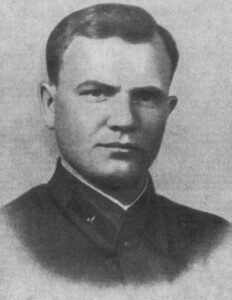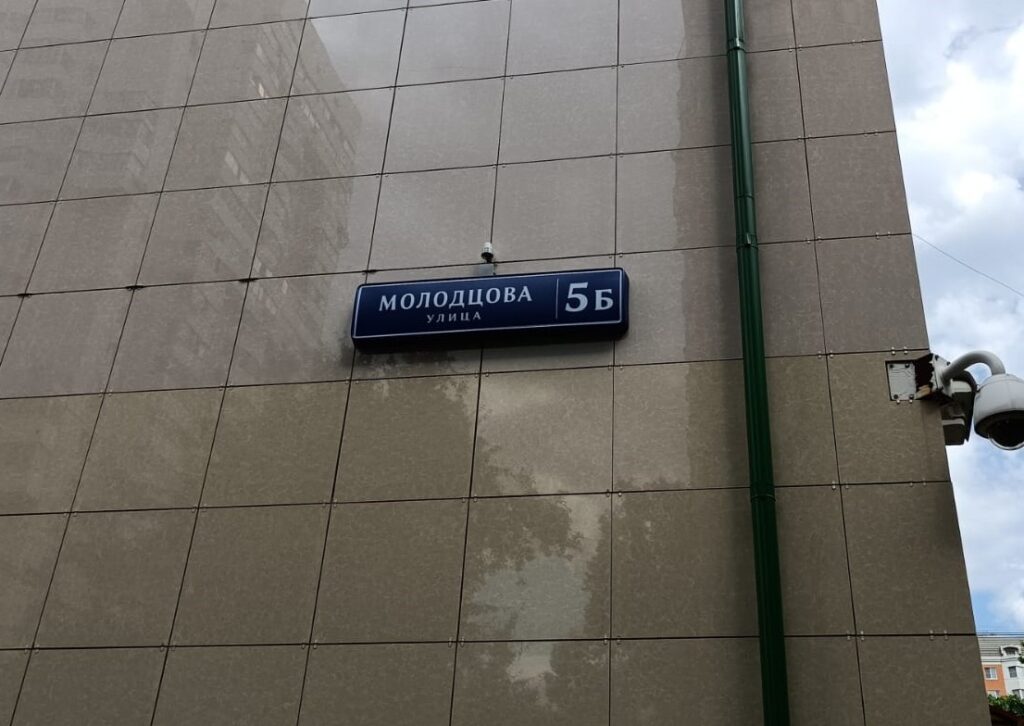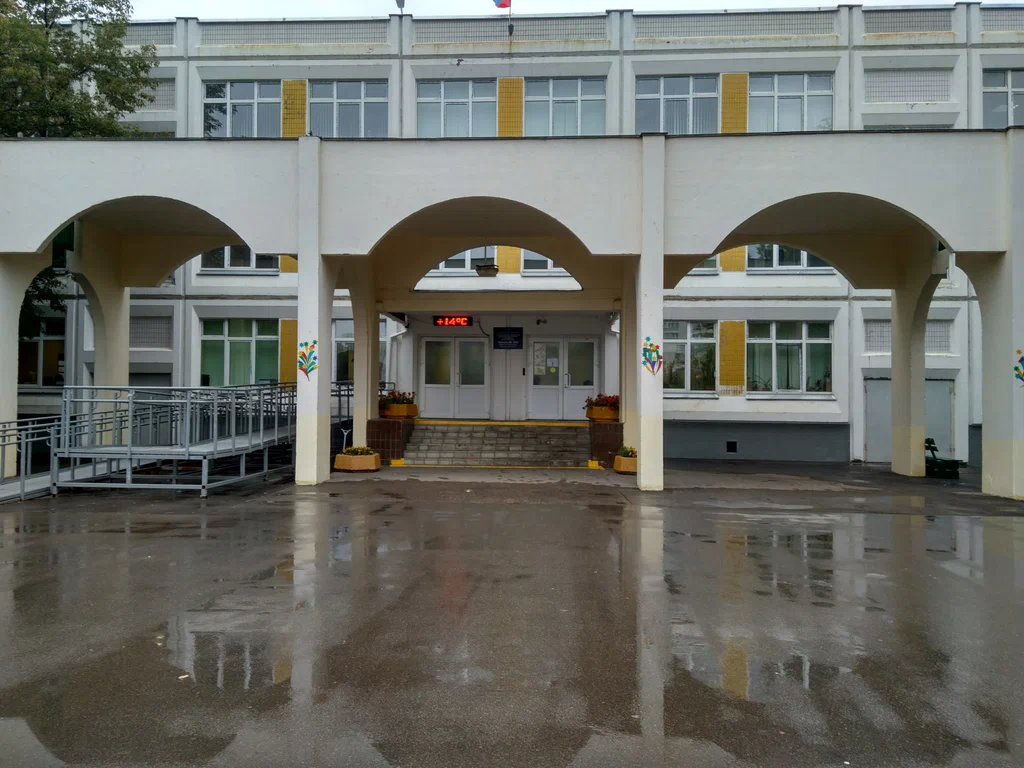Vladimir Alexandrovich
Molodtsov
1911-1942

Vladimir Aleksandrovich Molodtsov (pseudonym – Pavel Vladimirovich Badaev) was a Soviet intelligence officer, captain of state security. He was a partisan, Hero of the Soviet Union (November 5, 1944, posthumously). He was born on June 5, 1911 in Sasovo of Tambov province in the family of a railway worker. In 1918, he entered the Sasovskaya elementary railway school. In 1922, the family moved to Prozorovka (then Kratovo) Moscow province, where he continued his studies at a seven-year school. In 1926 he joined the Komsomol and became the secretary of the Kratov cell soon. Since October 16, 1930, according to the Komsomol draft, he has been working at the Bobrik-Donsky mine in the Moscow region as a trolley racer and a slaughterer. In 1931 he became secretary of the Komsomol committee of the mine, on April 25, 1931 he joined the ranks of the CPSU (b). In 1933 he rose to assistant director of the mine. In 1934, he studied at the Faculty of Labor at the Ordzhonikidze Moscow Institute of Engineering and Economics. In the same year, at the call of the party, he was sent to study at the Central School of the NKVD of the USSR. Since 1935 he served in the GUGB of the NKVD of the USSR as a assistant to the operative. In July 1940, Molodtsov became deputy head of the department, and from March 1, 1941 he became a head of the 2nd department of the 7th Department in foreign intelligence. With the beginning of the Great Patriotic War on July 8, 1941, he escorted his wife and three children to evacuation in Prokopyevsk, Kemerovo region on July 19, 1941. Having received a special assignment from the command, he arrived in Odessa to organize partisan formations, as well as to direct sabotage and intelligence work behind enemy lines under the pseudonym Pavel Badaev (his operational name was “Kir”). The pseudonym was chosen by the surname of Molodtsov’s wife, Antonina Badaeva. On October 16-18, 1941, the first partisan strikes were carried out against the Romanian troops who occupied Odessa. On October 22, 1941, the Romanian commandant’s office was blown up with the help of a radio bomb during a meeting held there. 2 generals (in particular, the commandant of the Odessa garrison Ion Glogozhanu) and 147 officers were killed. On November 17, 1941, a luxury train with the administration for occupied Odessa was blown up near the Zastava station. More than 250 officers and officials were killed. Until the beginning of 1942, despite the extremely difficult conditions of staying in the catacombs, a detachment of partisans repeatedly destroyed wire lines, railway tracks, sabotage was carried out in the seaport, the dam of the Hadjibey estuary was blown up, enemy manpower and equipment were destroyed, roads were mined, valuable intelligence information was obtained for the Stavka. Soviet aviation repeatedly carried out precise bombing strikes, the coordinates for which the commander transmitted to the “Centre”. A detachment of 75-80 people, based in the catacombs, diverted significant forces of the “SS” troops and the field gendarmerie numbering up to 16 thousand people. Romanian and German security services blew up, mined and concreted exits, let poisonous gases into mines, poisoned water in wells, left ambushes, etc., but the detachment acted. On February 9, 1942, as a result of the betrayal of one of the members of the detachment, Vladimir Aleksandrovich Molodtsov was arrested, as well as his contacts T. U. Mezhigurskaya and T. G. Shestakova and Ya. Ya. Gordienko at a safe house in the city. In prison, the commander and the partisans bravely endured savage tortures, but no one was extradited. May 29, 1942 Vladimir Aleksandrovich Molodtsov spoke for the first time only after the announcement of the death sentence – he responded to the offer to file a request for clemency: “We do not ask for mercy from our enemies on our land!”. Vladimir Aleksandrovich Molodtsov was shot on July 12, 1942 in Odessa. One of the Moscow streets is named after him, as well as GBOU «School № 285».
Address: Moscow, Molodtsova str.

